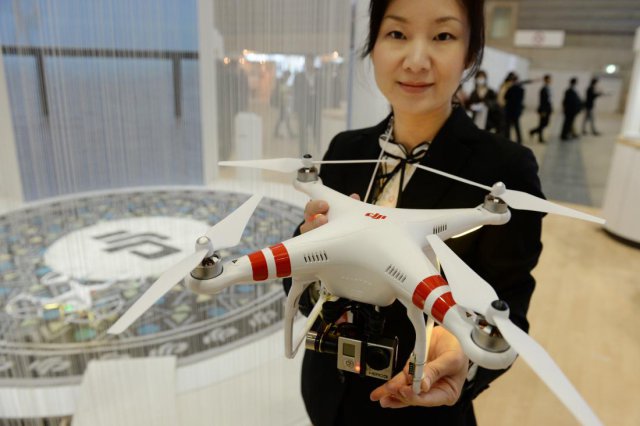DJI has filed a patent infringement lawsuit against Yuneec International, alleging that Yuneec copied “key achievements” of its research and development efforts. The lawsuit seeks to stop Yuneec from selling its products with disputed features just as the U.S. market for commercial small unmanned aircraft systems is poised to expand.
DJI filed the lawsuit on April 1 in the U.S. District Court for the Central District of California in Los Angeles. Specifically, it claims that Yuneec infringed on a “systems and methods for target tracking” patent the U.S. Patent and Trademark Office issued to DJI in October, and on an “interchangeable mounting platform” patent the agency issued on March 8.
“DJI has invested a substantial amount of resources over the course of nearly a decade into the research and development of UAVs. This investment has generated technology that is fundamental to the future of the UAVand related industrial applications,” the company said. “DJI welcomes competition, but is committed to protecting its intellectual property. (The) filing is a response to safeguard that investment, to protect customers and partners and to promote genuine innovation in this promising area.”
Asked for its response, Yuneec said it is reviewing the lawsuit. “We need to complete that review before providing any statements on the matter,” the company added.
Based in Shenzhen, China, DJI manufactures the Phantom and Inspire line of hobby and “prosumer” quadcopters, Spreading Wings multi-rotor helicopters, the Agras MG-1 octocopter for agricultural spraying, and the Zenmuse line of camera gimbals. It started offering its latest Phantom 4 quadcopter at Apple stores on March 15.
DJI models were dominant among operators who were granted the first 1,000 commercial exemptions by the Federal Aviation Administration—comprising 1,018 of the 1,480 drones used—according to an analysis by the Association of Unmanned Vehicle Systems International. The FAA has said it will release a long-awaited small unmanned aircraft system rule this summer that will provide a regulatory framework for commercial drone operations, making the exemption process unnecessary.
Hong Kong-based Yuneec builds the Typhoon series of quadcopters. On March 15, it announced pre-order availability of the new six-rotor Typhoon H, priced at $1,299. At the Consumer Electronics Show in January, Intel Corporation CEO Brian Krzanich in a keynote speech featured the Typhoon H, which will be fitted with Intel’s “RealSense” depth-sensing camera for collision avoidance. Last summer, the semiconductor manufacturer invested $60 million in Yuneec.
In a copy of the lawsuit provided to AIN, attorneys with the firm Wilson Sonsini Goodrich & Rosati describe DJI’s Phantom 4 “ActiveTrack” feature, which enables the drone to track and keep in frame a moving subject, and Yuneec’s “Watch Me/Follow Me” capability. The DJI Inspire 1’s gimbal can be detached and reattached to a separate, handheld DJI Osmo camera support; Yuneec offers a comparable “SteadyGrip” device.
“On information and belief, Yuneec monitors DJI’s patent portfolio by, for example, monitoring any press releases, articles, and websites regarding DJI’s patent portfolio,” states the complaint, which adds that Yuneec “has, on at least one occasion, altered the design of its products to avoid the infringement of DJI’s patents.”
The complaint seeks an injunction to stop Yuneec from “using, making, importing, offering for sale and/or selling” the allegedly infringing products, as well as damages.

